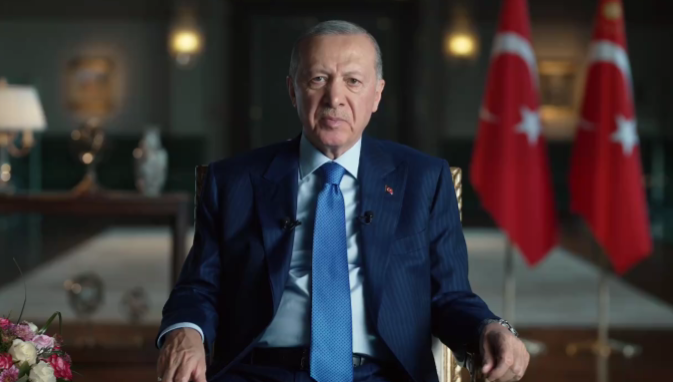Turkey has experienced a decade of hostility towards the press under President Recep Tayyip Erdoğan, with five journalists killed, 131 imprisoned, 77 convicted of “insulting the president” and hundreds more prosecuted for their work, Reporters Without Borders (RSF) said in an assessment marking the 10th anniversary of Erdogan’s presidency, the Stockholm Center for Freedom reported.
According to RSF, during President Erdoğan’s tenure the judicial system has been weaponized to suppress dissent, public broadcasting has become a state propaganda tool and media ownership has been increasingly concentrated in pro-government hands, leading to widespread bias and the stifling of independent voices.
“Independent journalism is now clearly in danger of extinction as a result of this oppressive decade,” said Erol Önderoğlu, RSF’s representative in Turkey. “We call on the president to take swift action and to carry out in-depth reform to protect independent journalists and guarantee the right to information in the country.”
Erdoğan’s authoritarian attitude and hostility towards journalists began before his reign as president, the RSF assessment said. When Erdoğan was prime minister, the Gezi anti-government protests in İstanbul in the spring and summer of 2013 were marked by an unprecedented surge in violence against media professionals. From May to September 2013, more than 150 journalists were attacked by police with complete impunity in İstanbul, Ankara and İzmir. This crackdown foreshadowed the impunity that accompanied Erdoğan’s new authoritarian approach to governance. Only three journalists were compensated for the damages they suffered.
RSF’s assessment also highlighted how Erdoğan devised a plan to concentrate media ownership in the hands of those close to his government. He created a financial system that seized media companies struggling to repay their debts to the state and ultimately allocated these outlets to private sector companies allied with the government. Today, more than 85 percent of private sector national media are controlled by companies that support the government or are bound to it by shared strategic interests.
Erdogan’s grip on the media – which also includes close control over state TV and radio broadcaster TRT and the Radio and Television Supreme Council (RTÜK) – contributed to his third presidential election victory in May 2023, at the end of a campaign clearly tainted by biased media coverage.
Judicial harassment has remained a central tool in the government’s strategy to intimidate journalists and prevent media coverage of the state’s authoritarianism, with at least 40 of the 131 journalists detained since President Erdoğan assumed the presidency in 2014 being convicted. Charges often used against journalists include spreading terrorist propaganda and insulting public officials.
Turkey in fact became the world’s biggest prison for journalists in 2018, during the state of emergency imposed after a coup attempt in July 2016. Mass arbitrary arrests were carried out across many media outlets, including the Zaman, Cumhuriyet, Sözcü and Özgür Gündem daily newspapers.
The report further highlights ongoing persecution of journalists both within Turkey and abroad, with many forced into exile to avoid imprisonment.
Online censorship has also intensified under President Erdoğan, with platforms like Instagram and Wikipedia facing bans and blocks in recent years.
RSF notes that five journalists have been murdered since Erdoğan became president, underscoring the dangerous environment for media professionals in Turkey.
Turkey was ranked 158th out of 180 countries in the 2024 World Press Freedom Index published by RSF.



